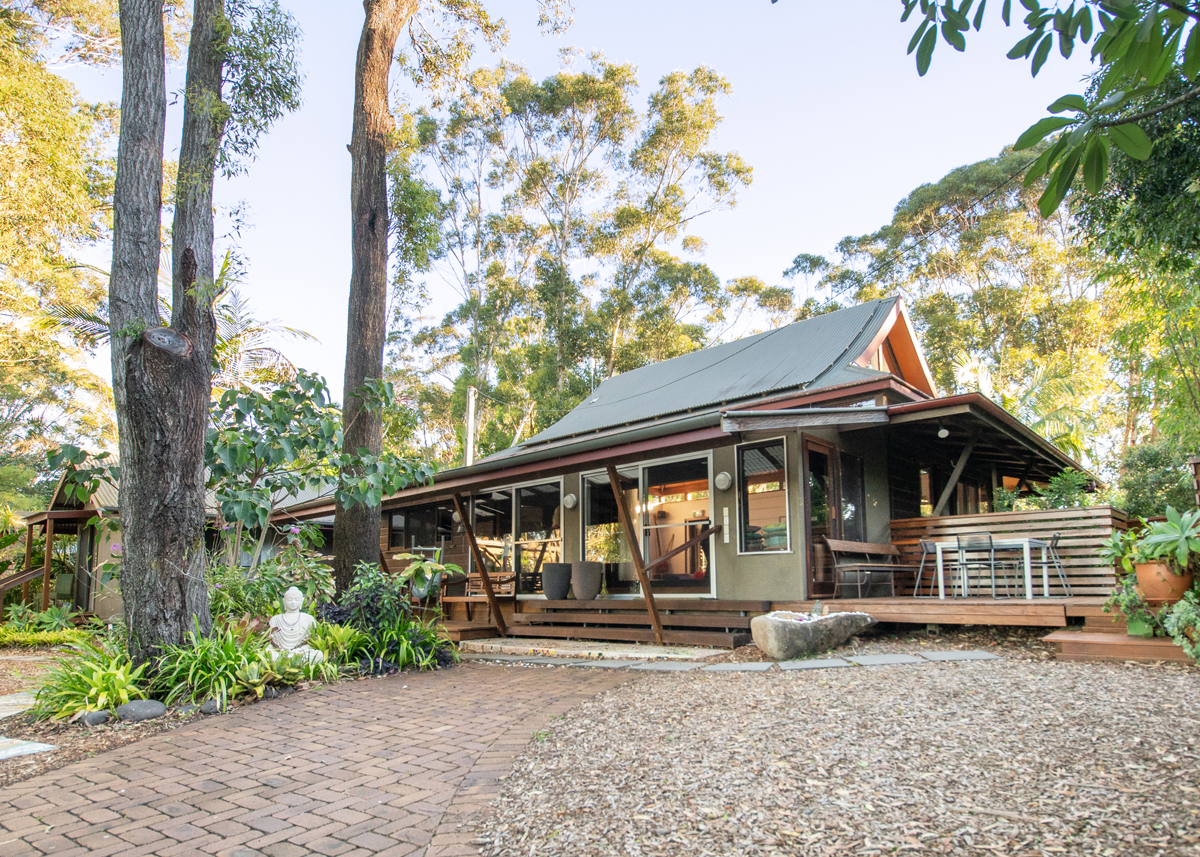
For full disclosure this is NOT a paid review of The Hoffman Process, I took myself off to sort my sh*t out in hope of getting the most of the next 40 years of my life.
For many men, our arm needs to be hanging off and blood going everywhere before we visit the doctor. When it comes to mental health, it’s often not until our head is falling off that we seek help for depression, anxiety, stress and other mental health issues. We put it in the ‘she’ll be right’ basket and hope sweeping it under the carpet will make the problem go away.
I wouldn’t say I was the latter but after 10 years of working non-stop on my business, turning 40 and countless other challenges in my personal life, the cracks had begun to appear. Therapy sessions were spent justifying my stress, mindfulness was nearly impossible to stick to and it was becoming more obvious the cheese was slowly sliding off my cracker. Happy moments became less often and the overall stress of work and day to day life became more apparent to those around me.
Weirdly, I found it hard to find a deeper solution. There were retreats in Queensland which started at $60,000 and went up to $100,000 for a three-week stay. There were very ‘woo woo’ retreats 2-day retreats which seemed less practical or fitting for someone like me. Lastly, there was, of course, the psych hospital option which sounded just awful. Just reading the intake requirements put shivers down my spine. Hard pass.
In my attempt to stay away from option three, I came across The Hoffman Process. A seven-day intensive program ‘For People Who Want Real Change’. Of all the options in front of me, it was practical and reasonably affordable compared to other options out there ( approx. $6,000).
A mentor I had years earlier had mentioned Hoffman to me which I probably dismissed as ‘mumbo jumbo’ at the time, and carried on my merry way. Maybe she planted something deep in my subconscious, maybe Google gods just served me the right webpage after two weeks of aimlessly looking online.
What is the Hoffman Process?
The Hoffman Process was created over 50 years ago by Bob Hoffman. Bob was all about figuring out how to have more love in the world, and in each person’s life, and heal the rifts we have in our beings as a result of not being unconditionally loved as children.
He turned his mission into a program which looks at ‘negative love patterns’ that we instinctively learn from our parents, who learn those from their parents. We either adopt those patterns or rebel against them which creates more patterns. For example, your father may have been a workaholic, so you’re a workaholic. Or your mother may not have set boundaries, so you’re now strict with your children as a form of rebellion against her laissez-faire behaviour.
At its core, it’s very simple stuff, but something we’re not used to thinking about or processing. The program is designed to help you spot these patterns and learn new ways to deal with them for the better, giving you the tools to deal with them when you’re faced with them on a day to day basis.
As I’ve never done Landmark or anything like that, it’s hard for me to compare but what drew me to The Hoffman Process was its balanced mix of psychological practices, mindfulness and spirituality. Plus over 100,000 people have done it worldwide, including Justin Bieber, Sienna Miller and Katy Perry, so there were heavy hitters getting behind it. Note: Justin left after a few days but the others all said great things about it. Clearly, he wasn’t a belieber.
It also should be noted that I avoided reading too much about Hoffman Process. It would have most likely sent me running the other way. I was lucky enough, though, to have bumped into some friends who had done it before. I also listened to Blake Mycoskie’s interview with Tim Ferriss about doing it, which put my mind at ease on the drive up to Byron Bay.
A snapshot of what Blake said;
“Yeah, The Hoffman Process, I mean there’s probably three to four experiences or practices that I’ve taken on in my life that have by far had the greatest impact in a positive way. And I love to start with The Hoffman Process because it is at the top of the list.”
Blake Mycoskie
I should note at this point that writing this story as a day by day blow would be a disservice to the experience. Instead it’s better to share the moments and things which I found to be both helpful and interesting to DMARGE readers. If you’re reading this to find out exactly what happens, then you’ll be disappointed. The best part of the experience was having no idea what the f*ck was coming next, so I won’t rob you of this if you ever decide to do it.
Anyways, the process takes place in Byron Bay about 10 times a year just a few minutes from the main town in the hills. It’s far enough away to ensure it feels like you could be in Bali or somewhere else. There is a real sense of isolation, which is key to the process. You’ve just got to sit with your stuff for seven days, which for many is a really tough ask, including myself.

That means no phone, exercise, books, television, work calls, yoga or anything else that you use to keep your mind busy. We spend so much time avoiding our ‘stuff’ thanks to social media, television, drugs, work, food, alcohol, and naps. There’s always something to take us away from how we’re really feeling. Hoffman calls these ‘addictions,’ which is kind of true, whilst some may give us a buzz or good feelings, they do take our attention away from what’s happening right now.
For me, it was work, plus a few other vices that I was leaving behind for the week. Once again it was a case of me not reading the fine print when I met my cabin mate. Triggered! I’m a 40-year-old sharing a cabin, I’d like to speak to the manager, please. Turns out my cabin buddy was a good bloke, who like me was there for change. Others who were a bit older did request a private room for an extra $500, but having a roommate was welcome after a long day of shit shovelling.
As I mentioned earlier you do have to hand your phone in on the first day but pretty soon you forget about not having a mobile phone as it would just be a distraction from the now, which is why you’re spending $6,000 to be there.
It’s hard to grasp sharing problems with 20 complete strangers but you soon realise everyone is there for the same reason. We’re all stuck and are looking for that push up the hill regardless of career, wealth or any of that status bullshit. Everyone is equal at Camp Hoffman.
The week is structured to ensure you’re always on the move, learning, practising and visualising. If there’s a theoretical piece, then you’re almost immediately putting it to work in small groups to begin training your ‘muscles’ to use that tool in real life.
On any given day you can be writing letters and getting everything out of your head and down on paper, the next you’re up and about running around like a wild 6-year-old. It’s these huge changes in physiology that help break your usual thinking and patterns, helping you get away from your intellect and get more in touch with your emotions.
You have no choice but to participate and give into what is happening around you. Some participants are clearly resistant – but eventually, everyone breaks, even the toughest most bulletproof blokes. Sharing your shit with complete strangers can be a red flag, but it’s remarkably cathartic and good practice for when you’re out in the real world and you’re back dodging bullets like Keanu in the Matrix.
Days at Hoffman are long and emotionally taxing but when they finally end you find yourself in bed and almost immediately asleep. A solid day of weeping, yelling, smashing, meditating or whatever it’s brought you will ensure your emotional child gets much-needed rest. You’re back up at 7am ready for another 12-15 hours of solid work on yourself. The days can sometimes feel like months – the week does go slow – but I’m sure there’s a good reason for that. Most importantly you’re very well fed, breakfast, lunch and dinner.
The facilitators are the real MVPs of the week. They’re there to guide you and be your support as you deal with your stuff. They have this remarkable ability to ensure you never feel judged for your woes, instead they act as your confidant to help you get through the rocky parts of the week. Trust me when I say this; there will be rocky parts but there are also some amazing moments, thanks to the facilitators.
In a group of 20 people, it’s nearly impossible to hide, so by day seven, you have a very strong emotional connection with those around you. Strangers become friends and support, regardless of age or background. Day by day everyones’ mood lifts and laughter becomes more frequent. You begin to talk about life outside of the bubble and how you’ll integrate back into the real world.
Integration into real life is perhaps an unexpected challenge of the week, everything feels fuzzy when you leave the retreat. For some reason, I was really nice to people and actually smiled more. Eew. Could this have actually worked? Am I cured? Not quite. You do a LOT in 7 days but you don’t expect a miracle in that time.
They say it takes about two years to fully integrate all the tools and practices learned in The Hoffman Process. Which sounds about right given just how much is packed into the week. The hardest part will be showing up for yourself and continuing to put the work in every day to get the most from your investment. Making the time every morning and before bed will be a challenge for some, but worth the effort, I think.
Personally, I can tell you that breaking my phone addiction has been huge for me. The need to constantly check for messages, Instagram, email, etc. has gone and my relationship with the device is so much healthier. There are countless other benefits I’ve noticed too, but we’ll save those for another sordid story of self-discovery.
If you only take one thing from this it’s the sooner you realise everyone has sh*t the quicker you can deal with your own and move on. Huzzah!
Read Next
- Negative Impact Of Social Media Goes Beyond Australians’ Mental Health, Study Reveals
- ‘My Mental Health Is Not Well’: Australian’s Honest Admission Sparks Outpouring Of Support
The post I Paid $6,000 To Share Feelings With 20 Strangers In Byron Bay. It Was Totally Worth It. appeared first on DMARGE.

0 Commentaires